The Role of Women in Raja Ampat in Maintaining Local Wisdom through the Sasi Tradition
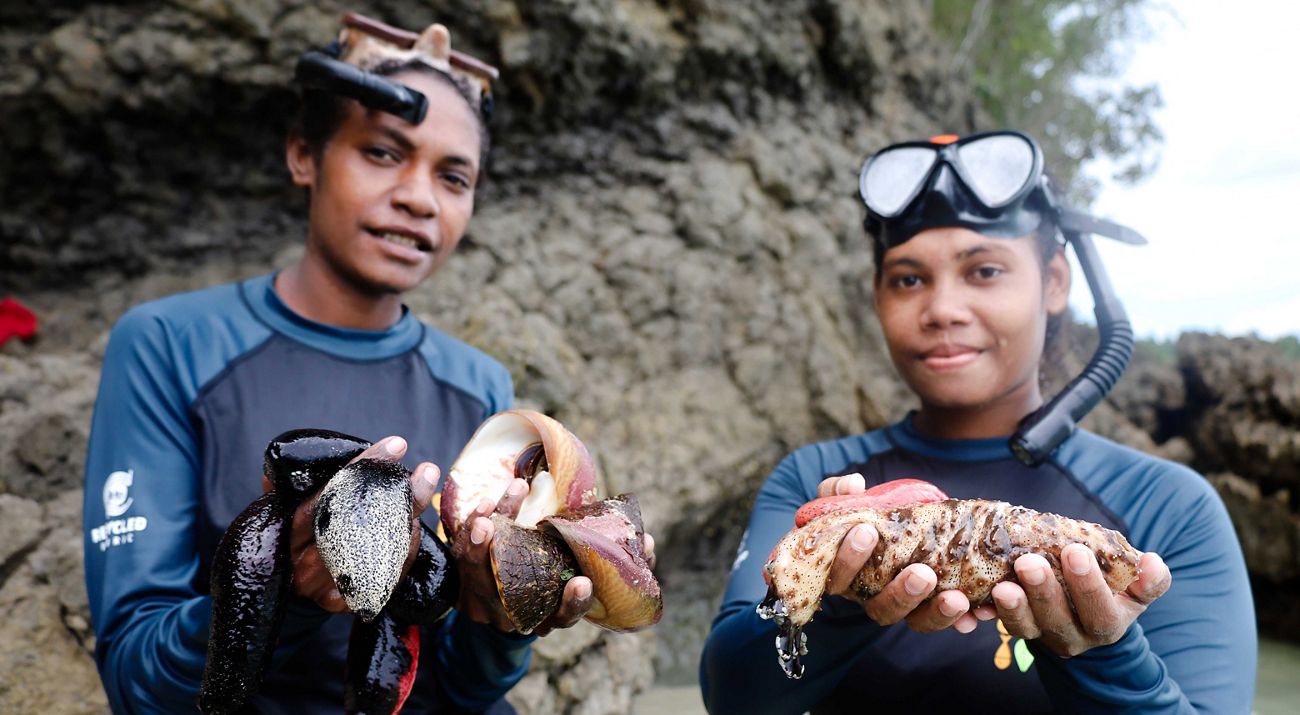
Media Contacts
-
Adia Puja Pradana
Communications Specialist Ocean Program YKAN
Yayasan Konservasi Alam Nusantara
Email: adia.pradana@ykan.or.id
The Waifuna women's sasi group from Kapatcol Village, West Misool District, Raja Ampat Regency, Southwest Papua, held a sea sasi opening ceremony on March 25, 2024. The sasi area was opened after being closed for one year. This year's sasi opening in Kapatcol Village will be held between March 25 and 28, 2024.
Sasi is a customary system for managing natural resources in a certain agreed-upon area, both on land and at sea, which is still widely applied in eastern Indonesia. Marine sasi applies unwritten rules that regulate access to fishing areas for marine resources, fishing gear, target species, and fishing times and locations.
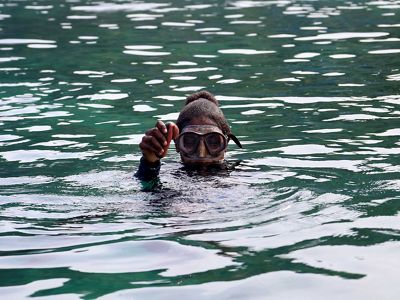
Historically, the sasi area was managed by men. However, the management of sasi in Kapatcol is different from others because women, namely the Waifuna group, carry it out. This group is the first women's sasi group in Papuan history to be given a sasi area and management rights. The village government, church, and traditional holders fully recognize this right.
"Women must be at the forefront of sustainable management of natural resources. "Through sasi, we have the opportunity to contribute to nature conservation in Kapatcol because we are aware that this nature belongs to future generations, so a collective role is needed to protect it," said Almina Kacili, Chair of the Waifuna Group.
The sasi area managed by Waifuna is increasingly achieving success. So, the village government expanded its management area from 32 to 213 hectares in 2019 until now.
"We give our highest appreciation to the Waifuna and YKAN women's groups who have supported the sustainable management of marine resources in Raja Ampat Regency. "Through the work of the Waifuna women's group, we learn that women can play an important role in preserving the environment as well as preserving noble traditions such as sasi, as a form of indigenous community-based utilization in the Sasi Zone of Conservation Areas," explained Plt. Head of the Department of Agriculture, Food, Maritime Affairs and Fisheries, Southwest Papua Province, Absalom Solossa.
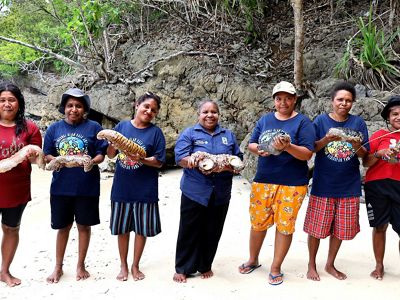
Sasi tradition, nature conservation based on local wisdom
Water resources in the Sasi area may not be taken within a certain period. Some apply the sasi cap for three months, six months, or one year, like the Waifuna group. It all depends on the agreement between the sasi management group and the village officials.
When entering the opening period for sasi, the Waifuna group and the people of Kapatcol Village can harvest marine life such as sea cucumbers, lobsters, and lola for 3-7 days. After the Sasi opening period, the Sasi area will be closed again next year.
"The marine biota that is harvested cannot be done haphazardly. They may only harvest agreed-upon types of marine life, such as sea cucumbers and lobsters. "Apart from that, the size of marine life that can be harvested must also be in accordance with the agreed provisions. For example, sea cucumbers that can be harvested must be at least 15 centimeters long," explained Lukas Rumetna, Senior Manager of Bird's Head Seascapes at the Archipelago Nature Conservation Foundation (YKAN).
When harvesting, you must not use fishing gear that is not environmentally friendly. People are only allowed to harvest marine life by diving and using their bare hands, which in the local language is called molo. People are also allowed to harvest marine life in shallow waters using wooden spears, called the balobe tradition.
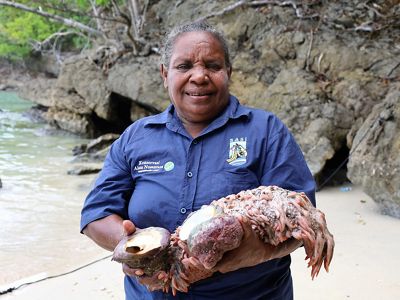
The impact of the sasi tradition ensures that the aquatic ecosystem in the Sasi area is maintained sustainably, and it brings economic benefits to the people of Kapatcol Village. The sales proceeds from buka sasi are used to support religious and social-community activities and education savings for the community.
Strengthening women's groups
Since 2011, the Waifuna group has received assistance from YKAN in the form of organizational management, utilization of sasi results, strengthening skills, financial management, recording results, and the basics of conservation, including monitoring population, size, and types of biota that can be caught.
YKAN Marine Program Director Muhammad Ilman said that YKAN supports the Waifuna group in ensuring that ecosystems and sasi areas are managed by sustainable conservation principles. According to him, conservation in the Bird's Head Seascape area can be more effective if it is supported by a socio-cultural system and women's role, which is translated into local policies.
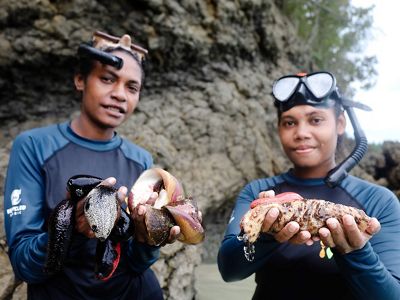
"One example is sasi, managed by the Waifuna women's group in Kapatcol Village and can improve the community's ecological, social, and economic conditions. "The success of the Waifuna group in managing the Sasi area inspired women's groups in other villages, namely the Joom Jak Sasi group from Aduwei Village and the Zakan Day group from Salafen Village in North Misool, which YKAN also accompanied," concluded Ilman.
Yayasan Konservasi Alam Nusantara (YKAN) is a scientific-based non-profit organization that has been present in Indonesia since 2014. With the mission of protecting lands and waters as life support systems, we provide innovative solutions to realize the harmony of nature and humans through effective natural resource management, prioritizing a non-confrontational approach, and building a network of partnerships with all stakeholders for a sustainable Indonesia. For more information, visit ykan.or.id.

